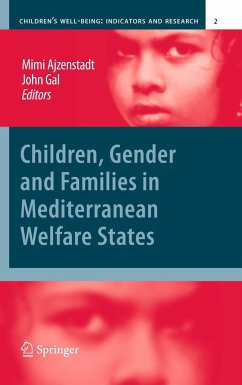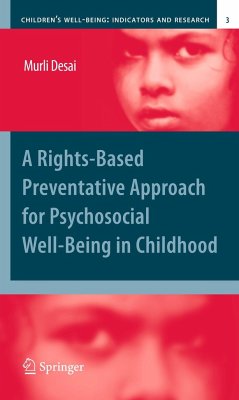
Advances in the Conceptualization of the Stress Process
Essays in Honor of Leonard I. Pearlin
Herausgegeben: Avison, William R.; Aneshensel, Carol S.; Schieman, Scott; Wheaton, Blair

PAYBACK Punkte
38 °P sammeln!
The stress process paradigm has been one of the most dominant conceptual models of health and illness over the past three decades. The contributions to this volume chart a new course for the stress process, extending the paradigm conceptually, methodologically, and substantively. Written in honor of Leonard I. Pearlin, the leading proponent of the stress process, the contributions to this volume provide a new direction for stress process research.
Featuring contributions from leading researchers, and an afterword by Leonard I. Pearlin, this comprehensive volume covers three major sections:
-Conceptual and methodological extensions of the stress process
-The roles of family and work in the stress process, throughout the life course
- Psychosocial factors that impact health outcomes.
This volume will be an invaluable resource for researchers in sociology, social psychology and public health, all seeking to understand the pervasive role of stress on social disparities in health and illness.
Featuring contributions from leading researchers, and an afterword by Leonard I. Pearlin, this comprehensive volume covers three major sections:
-Conceptual and methodological extensions of the stress process
-The roles of family and work in the stress process, throughout the life course
- Psychosocial factors that impact health outcomes.
This volume will be an invaluable resource for researchers in sociology, social psychology and public health, all seeking to understand the pervasive role of stress on social disparities in health and illness.
In 1981, Leonard Pearlin and his colleagues published an article that would ra- cally shift the sociological study of mental health from an emphasis on psychiatric disorder to a focus on social structure and its consequences for stress and psyc- logical distress. Pearlin et al. (1981) proposed a deceptively simple conceptual model that has now influenced sociological inquiry for almost three decades. With his characteristic penchant for reconsidering and elaborating his own ideas, Pearlin has revisited the stress process model periodically over the years (Pearlin 1989, 1999; Pearlin et al. 2005; Pearlin and Skaff 1996). One of the consequences of this continued theoretical elaboration of the stress process has been the development of a sociological model of stress that embraces the complexity of social life. Another consequence is that the stress process has continued to stimulate a host of empirical investigations in the sociology of mental health. Indeed, it is no exaggeration to suggest that the stress process paradigm has been primarily responsible for the growth and sustenance of sociological research on stress and mental health. Pearlin et al. (1981) described the core elements of the stress process in a brief paragraph: The process of social stress can be seen as combining three major conceptual domains: the sources of stress, the mediators of stress, and the manifestations of stress. Each of these extended domains subsumes a variety of subparts that have been intensively studied in recent years.












